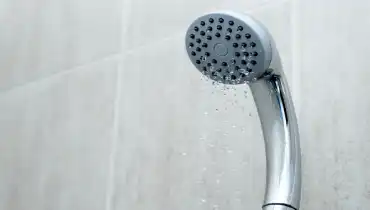
The Root Causes of Low Water Pressure Issues
There's nothing worse than turning on a faucet and getting only a trickle of water. Low water pressure can be frustrating, especially when you're trying to shower or wash dishes. Fortunately, there are many solutions available to help resolve this annoying problem.
As your local professional plumbers, Mr. Rooter Plumbing of Pomona Valley specializes in handling low water pressure problems. We’ve encountered every scenario over the years. Our technicians have the tools and techniques to get your water flowing at the speed and velocity you need.
In many cases, low water pressure can be fixed with a simple DIY solution. In other scenarios, improving water pressure requires professional assistance. Today, we will explore the causes of low water pressure and outline effective solutions to get your water back to its regular flow.
Tips for Inspecting Water Pressure Issues
Check for Leaks
Leaks are a common cause of low water pressure. When water escapes due to a leak, your faucets and appliances will experience a significant drop in water pressure. If you suspect a leak, we recommend checking your water meter while no water is running. A leak is likely if the meter continues to drop with no explanation. If so, contact Mr. Rooter Plumbing of Pomona Valley to locate and repair the issue.
Check for Clogs
Clogs in pipes can also contribute to low water pressure. Buildup from minerals, sediments, and other debris can accumulate, hindering water flow over time. If you suspect clogged pipes, turn off the water supply valve and open the faucet to release water remaining in the piping. After the water is released, we recommend using a plumbing snake or cable auger to remove easy-to-reach blockages. You can also try flushing your pipes with hot water or a baking soda and vinegar solution. If these attempts don't succeed, contact one of our professional plumbers right away.
Consult with Nearby Homeowners
Low water pressure could be due to citywide or regional issues. Citywide water systems can suffer from a variety of setbacks, including:
- Leaks
- Clog
- Buildup
- Corrosion
In such circumstances, we recommend calling the city water department or talking to neighbors to see if they are experiencing similar issues. Neighborhood-wide water pressure issues are likely caused by issues rooted within the municipal water system.
Inspect Your Well or Well Pump
Low water pressure in homes off-the-grid can result from problems with the well or well pump. Wells can run dry, suffer from contamination, or experience backups that impact water pressure. The well pump, which is responsible for drawing water from the well and pumping it to the house, can also malfunction and experience damage.
Try a Water Pressure Test Gauge Tool
You don't have to be a plumber to test your water pressure. You can buy a water pressure test gauge with a hose connection from a local hardware store and test your home’s water pressure yourself. Turn off your home faucets and water-using appliances (such as the dishwasher and washing machine) to get an accurate reading. There is likely an issue with the city's water system or your water connection if the gauge indicates the water pressure is below 40 PSI.
How to Fix Low Water Pressure
Install a Water Pressure Booster
One surefire solution to low water pressure is to install a water pressure booster. A water pressure booster increases pressure by adding more force to your water supply. By pumping water through your pipes and outlets, the booster provides a consistent and robust water flow.
Boosters come in various power ranges. There are two types of booster systems:
- Electric: An electric booster system relies on an electric pump to increase pressure.
- Hydropneumatics: A hydropneumatic system uses a tank that stores and pressurizes water.
Installing a booster system may be costly, but it will provide a long-term solution to low water pressure issues. Our technicians can help you choose an option that suits your unique needs.
Replace the Water Pressure Regulator
The water pressure regulator is instrumental in regulating water pressure throughout your plumbing system. If it is failing, damaged, or malfunctioning, it can cause a drop in water pressure. Replacing a regulator is best left to a professional plumber with specialized knowledge and skills.
Open Your Main Water Valve
Sometimes the fix for low water pressure is simple. We recommend checking to see if your primary water valve is fully open before troubleshooting your plumbing system. Many homeowners unintentionally close the valve during repairs or other home projects. In some situations, neighborhood pranksters can shut off accessible water valves. Whatever the cause, a turned-off water valve can halt and hinder water pressure.
Want to Improve Your Water Pressure? Contact a Pro Plumber!
Water pressure problems can be frustrating, especially if your household relies on a steady water supply. Don’t hesitate to contact Mr. Rooter Plumbing of Pomona Valley without delay if your water flow is not as strong as it used to be. Our plumbing specialists have the knowledge and equipment necessary to get to the bottom of the issue and deliver long-lasting solutions.
We can remove clogs, fix broken piping, repair leaks, install water boosters, and replace water pressure regulators with speed and ease. Our services are backed by industry-leading technicians and reliable guarantees.
Tired of dealing with low water pressure? Call today!

